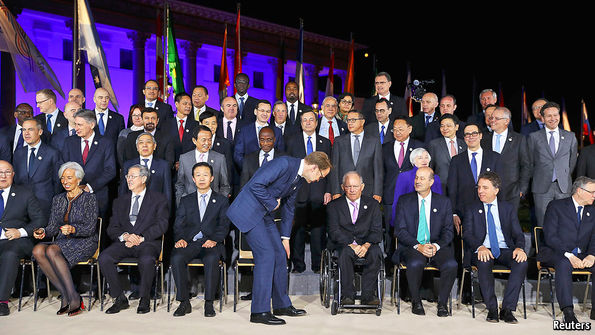
THE IMF “systematically impoverishes foreigners”, and the World Bank’s advice has “negative value to its best clients”. These harsh words were voiced not by lefty critics of the Washington Consensus, but by two men (David Malpass and Adam Lerrick, respectively) whom Donald Trump has picked to lead his Treasury’s dealings with the rest of the world, including the international financial institutions (IFIs), such as the World Bank and IMF, and the G20 group of leading economies.
Their future boss, Steven Mnuchin, America’s treasury secretary, is not much more reassuring to the global financial establishment. At his first G20 meeting, in Baden-Baden in Germany on March 17th-18th (pictured), he vetoed a long-standing pledge to “resist all forms of protectionism”. It had often been breached. But hypocrisy is the tribute vice pays to virtue.
To veterans of international economic affairs, this combative stance is baffling. America’s government now seems to disdain a set of institutions it nurtured into life—institutions that are more commonly criticised for following America’s will too closely. “The United States is just handing the leadership over to China of the…





